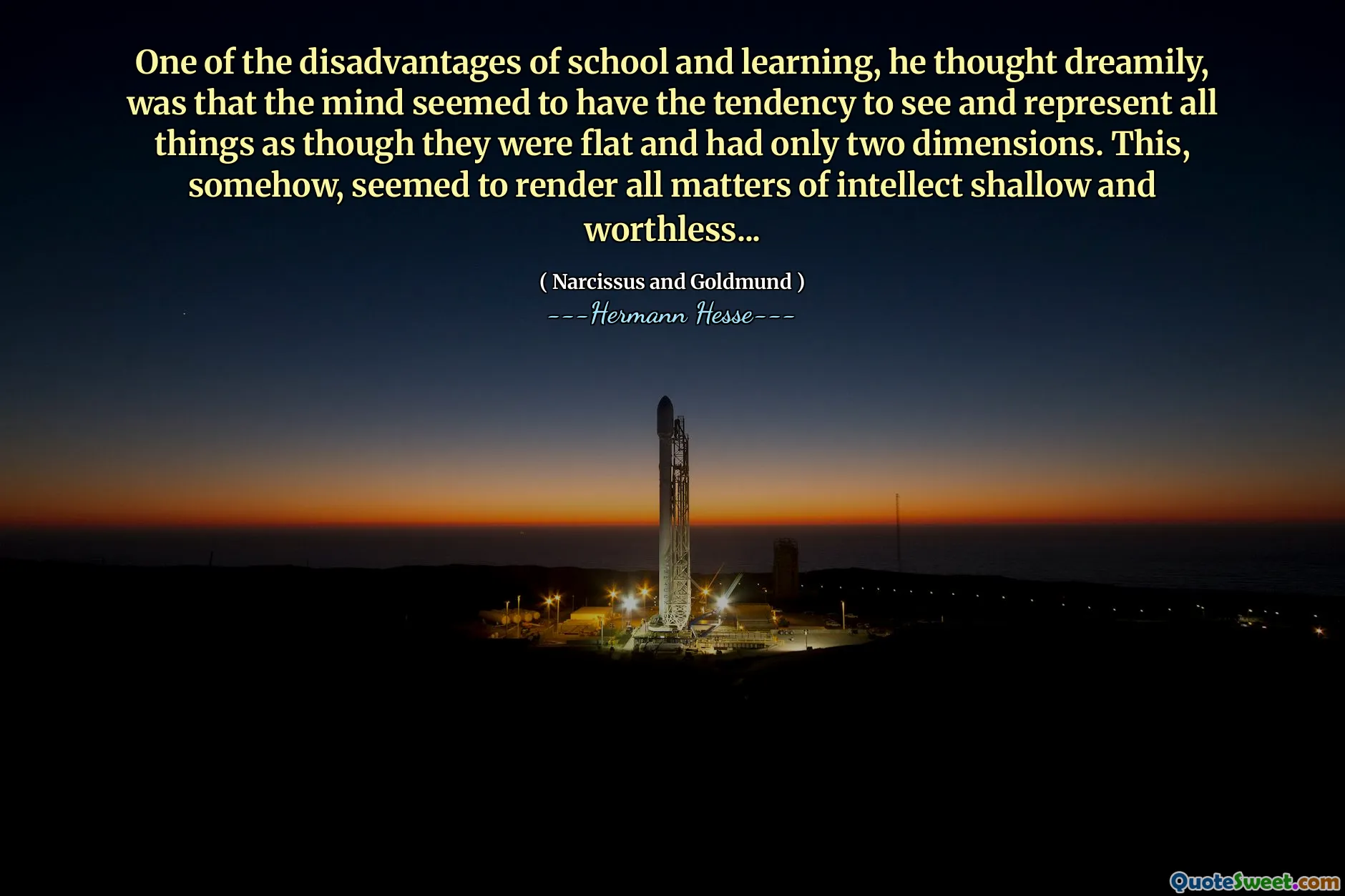
One of the disadvantages of school and learning, he thought dreamily, was that the mind seemed to have the tendency to see and represent all things as though they were flat and had only two dimensions. This, somehow, seemed to render all matters of intellect shallow and worthless...
This quote touches on a profound perception about education and cognition—highlighting a potential limitation inherent in traditional methods of learning. The metaphor of the mind perceiving the world as flat and two-dimensional suggests that our understanding can become superficial when constrained by narrow perspectives or oversimplified frameworks. In a way, it echoes a common critique of rote memorization and standardized schooling, where complex realities are reduced to simplified facts or formulas, stripping away nuances and depth. This simplification might make it easier to acquire knowledge temporarily, but at the expense of true understanding and insight. When the mind adopts such a limited view, it risks dismissing the richness, ambiguity, and multidimensionality of life's phenomena, leading to shallow intellectual engagement. The quote also beckons to consider the importance of fostering imagination, curiosity, and critical thinking—qualities that enable us to perceive the multifaceted nature of truth and existence. It invites reflection on how education could prioritize nurturing a more complex, layered understanding rather than settling for superficial definitions. Recognizing the tendency to see only surface-level aspects encourages educators and learners alike to seek depth, challenge assumptions, and appreciate the intricacies behind every subject or experience. Ultimately, the message is a reminder that true wisdom resides in perceiving the world in three dimensions—embracing complexity and resisting the urge to settle for flat, two-dimensional interpretations.










